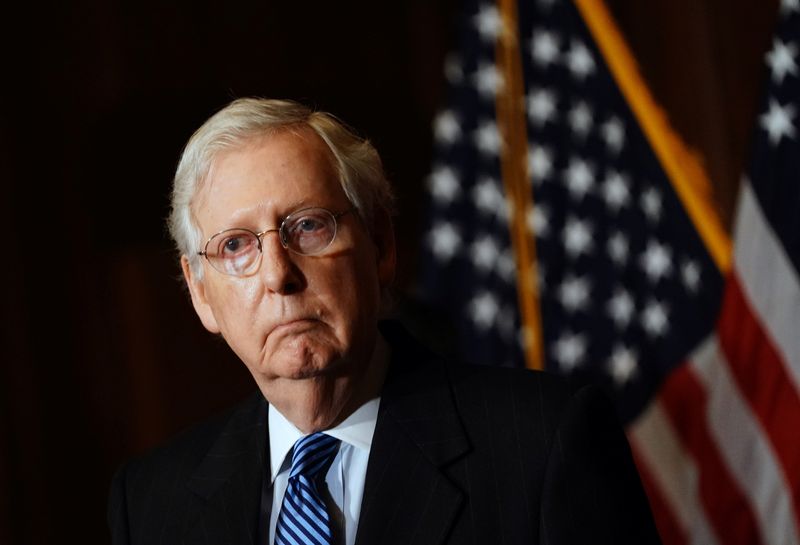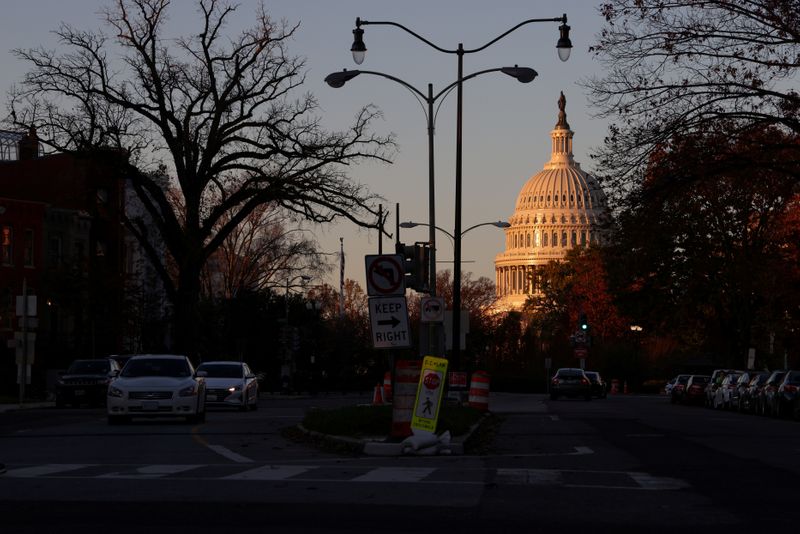By Susan Cornwell and Richard Cowan
WASHINGTON (Reuters) - The U.S. House of Representatives on Wednesday approved a one-week extension of federal government funding, giving lawmakers more time to haggle over a broader spending package with coronavirus relief.
The House voted 343-67 on a measure to prevent federal programs from running out of money on Friday at midnight (0500 GMT on Saturday) by extending current funding levels until Dec. 18.
The Senate is expected to vote on the measure as early as Thursday and send it to President Donald Trump in time to avoid a government shutdown.
The move gives Congress seven more days to enact a broader, $1.4 trillion "omnibus" spending measure, to which congressional leaders hope to attach the long-awaited COVID-19 relief package.
But agreement has remained elusive this week as proposals and counterproposals on COVID-19 aid have flown around the U.S. Capitol. The thorniest issues - business liability protections sought by Republicans and aid to state and local governments sought by Democrats - have yet to be worked out.
"We're still looking for a way forward," Senate Majority Leader Mitch McConnell told reporters Wednesday before taking to the Senate floor to blast House Speaker Nancy Pelosi and Senate Democratic leader Chuck Schumer for not accepting two Republican offers a day earlier.
A bipartisan group of lawmakers from the House and Senate released a summary of their $908 billion proposal aimed at breaking the months-long stalemate.
The proposal would extend for 16 weeks pandemic-related unemployment insurance programs due to expire at the end of the month. The measure would also provide an extra $300 a week in supplemental unemployment benefits for 16 weeks, from the end of December into April.
While the summary said there was agreement in principle on liability issues and $160 billion in aid to state and local government, it did not give details, and lawmakers said they were still working on these.
McConnell on Tuesday proposed breaking the deadlock by dropping those two contentious issues for now. But Democratic leaders Schumer and Pelosi rejected the idea.
On Tuesday evening, Treasury Secretary Steven Mnuchin weighed in for the first time since before the November election, saying he had presented a $916 billion relief proposal to Pelosi that includes money for state and local governments and liability protections for businesses.
But Pelosi and Schumer said they viewed the bipartisan negotiations as the best hope for COVID-19 relief.
Other Democrats also reacted cautiously to Mnuchin's proposal, asking why it lacked supplementary benefits for the unemployed while including direct checks of $600 for all individuals.
"How can anybody say that I'm gonna send another check to people that already have a paycheck and job, and not send anything to the unemployed? It doesn't make any sense to me at all," said Senator Joe Manchin, a member of the bipartisan group, told reporters.
Congress approved $3 trillion in aid in the spring to mitigate the effects of shutdowns to curb the spread of the coronavirus, but legislators have not been able to agree on any additional help since.

The pandemic has roared back to levels surpassing those seen early in the crisis, with more than 200,000 new infections reported each day and fresh shutdowns in some areas. More than 287,000 Americans have died of COVID-19 so far, and millions have been thrown out of work.
